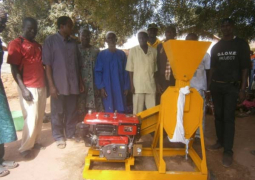Food displays an important role in our day to day social activities. Joy over social events, feastings and Iftar during Ramadan at which the presence of guests and family are needed adds to the excitement.
During Ramadan people become more generous with food and as a result may take food to friends and families or have them over for Iftar.
This is in line with the principles of Islam which believes in sharing and caring.
However to have a successful Iftar, the host and hostess have to do some planning.
Planning is very important especially during the Ramadan. Most times people fail to plan and as a result waste lots of food. Planning can start with how many people you want to invite, their taste, see if some of them are vegetarians, on a diet and then later see how much can be spent.
This would keep you on your tracks.
For starters, you might start with tea or hot beverages and probably dates as a tradition on your list. An accompaniment for this can be bread. One thing I can assure you is that this won't go to waste.
Maghrib prayers might come in before the main meal.
The main meal can either be any of the normal Gambian cuisines or a European one.
As the host or hostess it is your duty to make your guests comfortable. This could be during and after the meal. You can start by cracking jokes or picking up burning issues in the society in which your guests can feel free to comment.
Since most Gambian settings do not include dining tables, the guest is most likely to be served at all times and that can become stressful. An easier way to do this is to bring food items, water and cold beverages within the guests' reach.
If snacks like cakes are provided, they can be served on a plate with cold beverages, drinks or fruit juices as an accompaniment. This can be called the dessert and it is the last part of the Iftar.
When things go smoothly, then the Iftar would be a success, thus leaving both the host/ hostess and guests with a satisfied smile.




